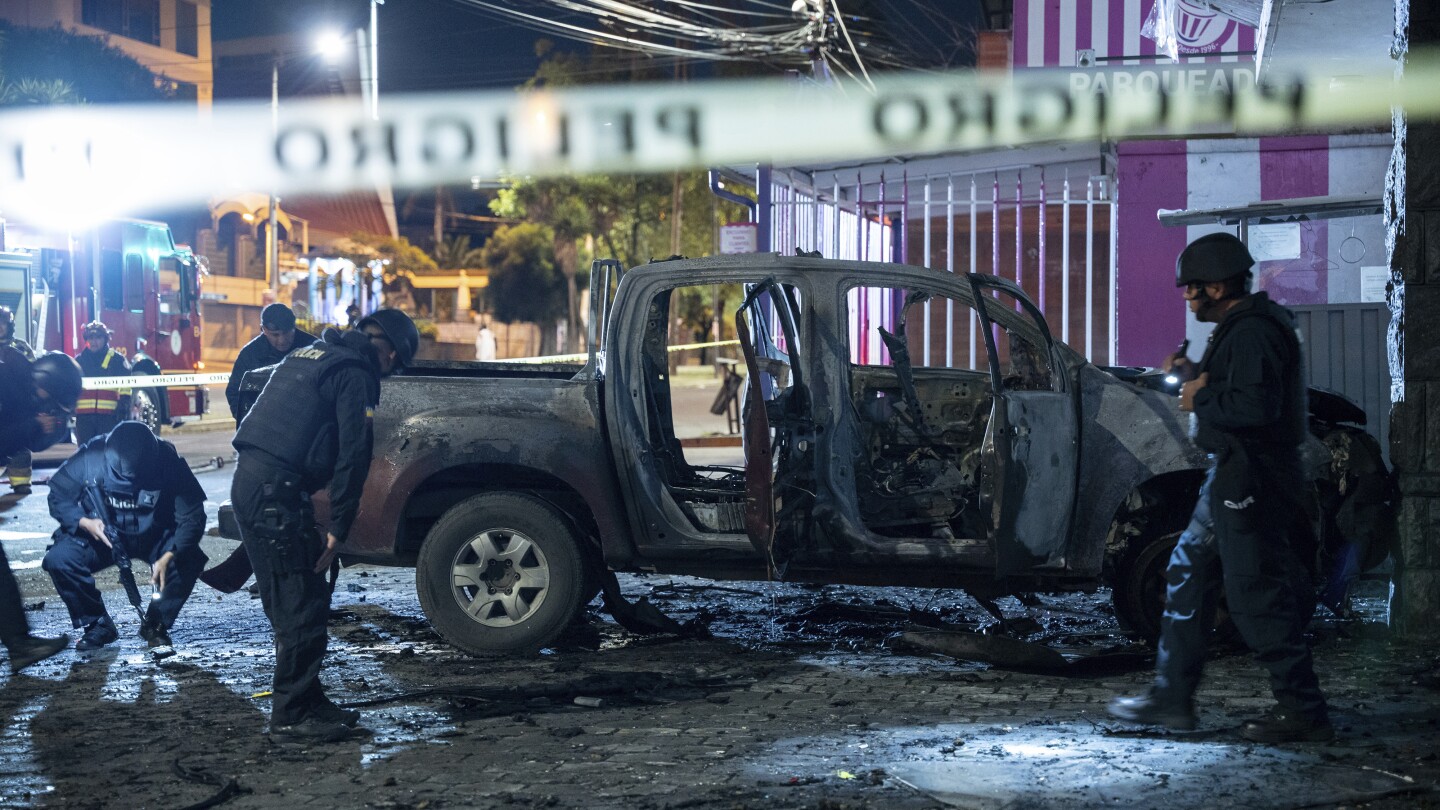QUITO, Ecuador (AP) — Two car bombs exploded in Ecuador’s capital overnight within hours of each other without injuring anyone, police said Thursday, but they served to underscore the South American country’s fragile security.
Ecuador’s National Police said the first bomb went off Wednesday night in an area of Quito where an office of the country’s corrections system was previously located, while the second bomb exploded outside the agency’s current location.
The explosions happened three weeks after the assassination of a presidential candidate in the same city rattled Ecuadorians.
Ecuador National Police Gen. Pablo Ramírez, the national director of anti-drug investigations, told reporters Thursday the explosions were related to “several transfers of inmates” that took place this week.
The corrections system, known as the National Service for Attention to Persons Deprived of Liberty, in recent years lost control of large prisons, which have been the site of violent riots resulting in dozens of deaths, and has taken to transfer inmates to manage gang-related disputes.
Ramírez said police found gas cylinders, fuel, fuses and blocks of dynamite among the debris of the explosions.
The mayor of Quito, Pabel Muñoz, told the Teleamazonas television station that he was hoping “for justice to act quickly, honestly and forcefully.”
“We are not going to give up. May peace, calm and security prevail among the citizens,” Muñoz said.
Ecuadorian authorities attribute the country’s spike in violence over the past three years to a power vacuum triggered by the killing in 2020 of Jorge Zambrano, alias “Rasquiña” or “JL,” the leader of the local Los Choneros gang. Members carry out contract killings, run extortion operations, move and sell drugs, and rule prisons.
Los Choneros and similar groups linked to Mexican and Colombian cartels are fighting over drug-trafficking routes and control over territory, including within detention facilities, where at least 400 inmates have died since 2021.
Presidential candidate Fernando Villavicencio, who had a famously tough stance on organized crime and corruption, was killed Aug. 9 at the end of a political rally in Quito despite having a security detail that included police and bodyguards.
He had accused Los Choneros and Macías, whom he linked to Mexico’s Sinaloa cartel, of threatening him and his campaign team days before the assassination.
The country’s National Police tallied 3,568 violent deaths in the first six months of this year, far more than the 2,042 reported during the same period in 2022. That year ended with 4,600 violent deaths, the country’s highest in history and double the total in 2021.
The port city of Guayaquil has been the epicenter of violence, but Esmeraldas, a Pacific coastal city, is also considered one of the country’s most dangerous. There, six government vehicles were set on fire earlier this week, according to authorities.

